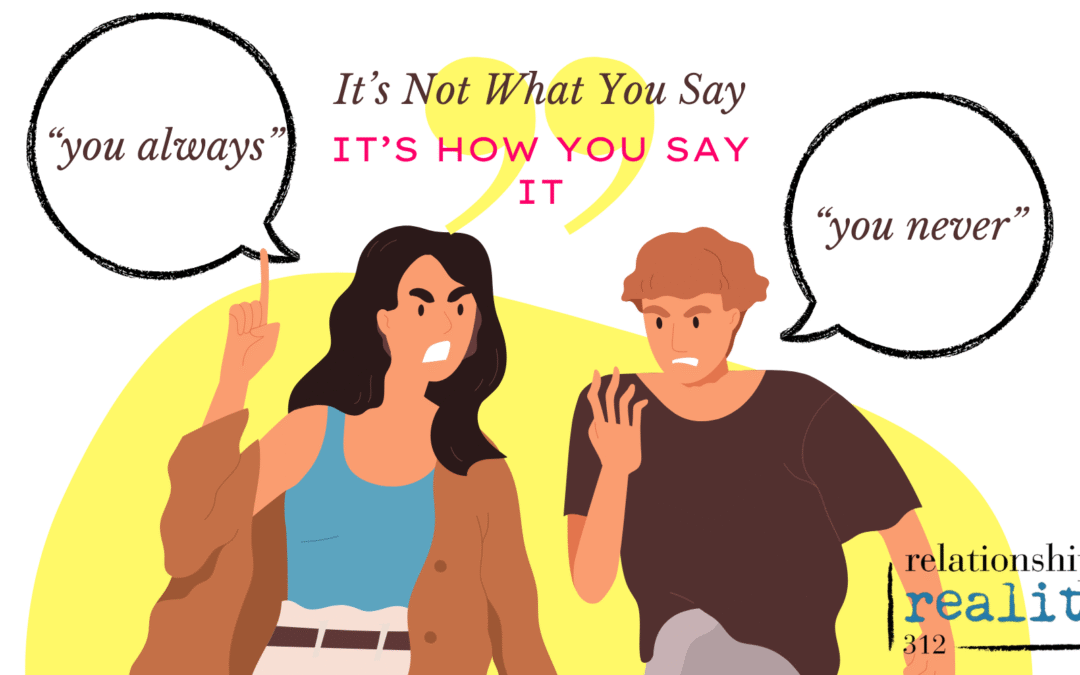A big part of couple’s communication is that their word choices affect their partner. The words people use can signify how they feel, where they are mentally, and their thought process. In essence, words do matter. Within our close relationships, we can replay words that stick out for us and some of these words can lead us to being defensive. These words can create an ineffective way to communicate when what we actually desire is effective communication skills within our relationships.
These words which trigger defensiveness and that can have a lasting impact are known as absolute words.
Absolute words are contained in statements that cause an instant reaction in the other person. Think of it as hearing a word feels like adding salt to a wound…it burns!!! And its effects can be lasting. They are called absolute words because they do not allow any wiggle room, are definitive, and unconditional.
Sometimes, absolute words can be non-toxic when used appropriately or in romantic gestures, such as:
- “I have fun with you all the time.”
- “We always end up having great memories there.”
- “I never want this moment to end.”
- “Every time we end up at this restaurant, we get yummy leftovers to take home.”
However, the moments that stand out to couples more often are when they are used in a toxic way that can make us defensive, such as:
- “You never help me with the dishes/kids/cleaning or chores.”
- “I am always the only one that ends up trying to put in effort.”
- “Every time I tell you how I am feeling, you…”
- “As usual or all the time, I have to initiate…”
The issue isn’t your feelings, concerns, or the feedback you might want to share with the other person, because all of these can create relationship growth. Rather, it is how you are saying it that may elicit a reaction that is more detrimental to the conversation and to your relationship. Even the absolute statements or words used in non-toxic ways are not always true in every single instance. However, our brain does not pick those apart and analyze them the way we may analyze when they are used negatively. When you use absolute words or statements in your day-to-day with your partner, let that be a slight warning sign you might also be using them in a detrimental way.
For example, say you always enjoy your time with your friend Alex. In reality, sometimes you want space, might not be in the mood, or feel annoyed by Alex. Just because you say you always enjoy your time together, doesn’t necessarily mean it’s actually every single time.
Being mindful of absolute words and understanding how they can impact us can make a big difference for us and our relationships. Think of them this way: if you begin noticing absolute words in your relationship, these are a warning sign that your main issue or complaint is not being heard the way you intended. This might lead to the person on the receiving end being reactive, reserved and defensive and result in a breakdown of your communication.
If you would like to learn more about breaking the use of absolute words and ensuring your main point gets across, feel free to reach out to me via the contact form on our website.

